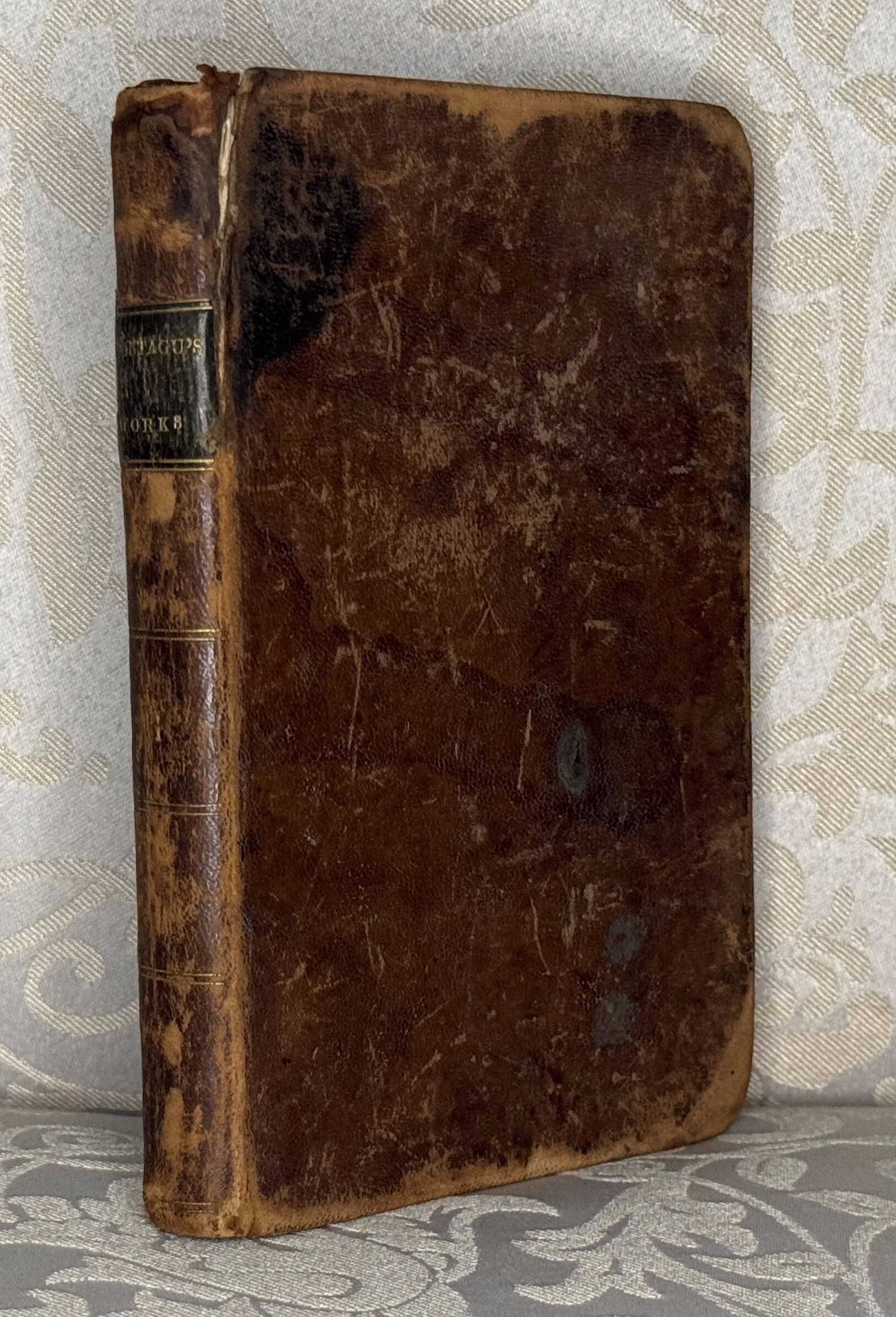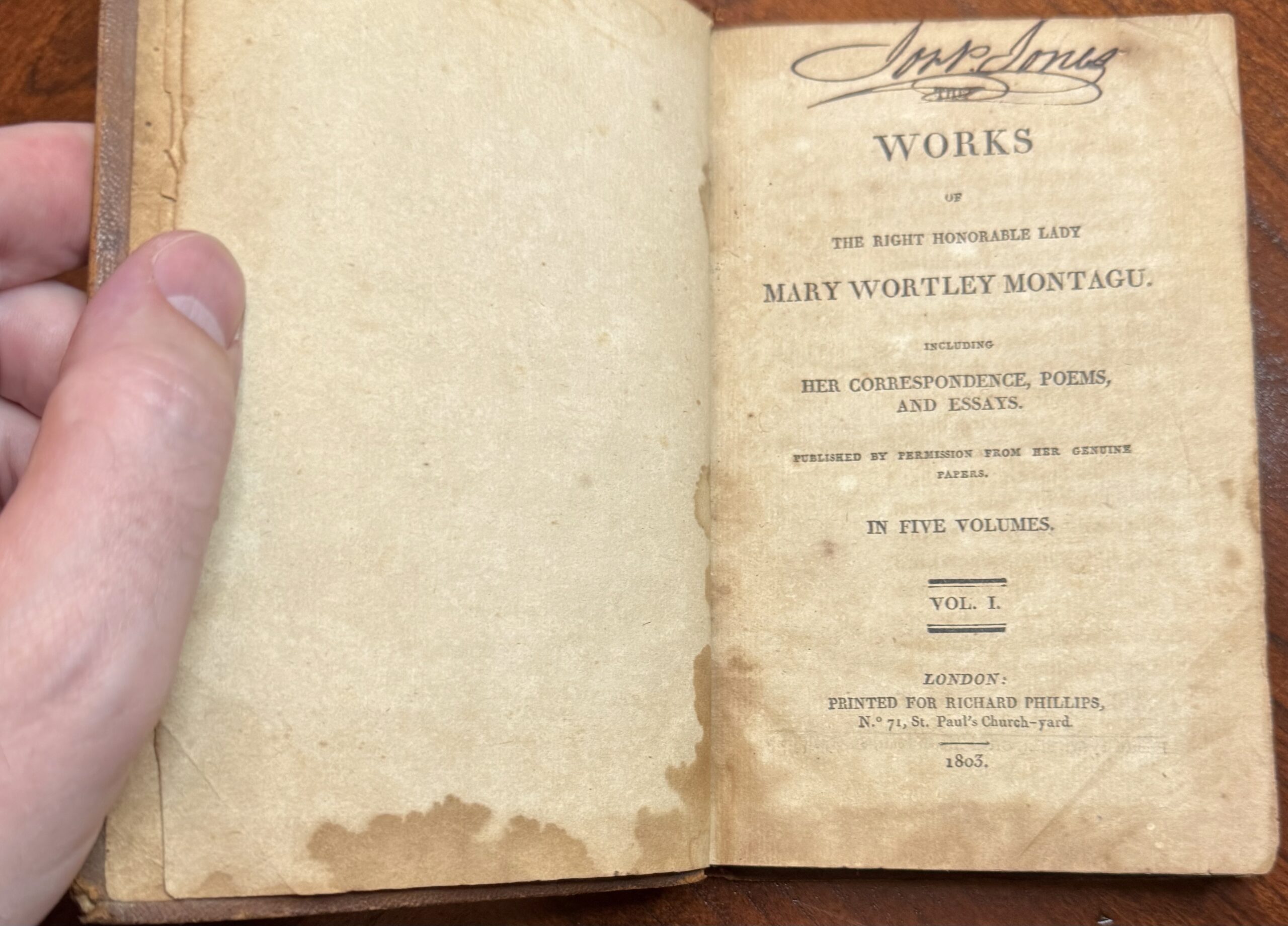- Title: The Works of the Right Honorable Lady Mary Wortley Montagu
- Printed by W. Flint for Richard Phillips at No 71 – St. Paul’s Church-yard
- Estimated year of printing: 1803
Notes:
I’m proud that I have several books in my collection connected to strong women — there’s Woman Suffrage: History, Arguments, Results (1916), a handbook full of arguments in support of granting women the right to vote; The Court of the Empress Josephine (1891), which tells the story of the first wife of Napoleon Bonaparte; and even The Grammar School Reader (1848), which belonged to my grandmother during a period where women didn’t have the same the same educational opportunities as men. This book fits right in with those, and, having been published in 1803, is the oldest example.
Lady Mary Wortley Montagu (1689 – 1762) was an English aristocrat, medical pioneer, writer, and poet. In 1712, she married Edward Wortley Montagu, who became the British ambassador to Turkey, part of the Ottoman Empire. She travelled with him to Constantinople (now Istanbul), and wrote extensively about her experiences there in a series of lively letters. She had a particular focus on the women of that society, writing about their beauty and hospitality, social customs related to Turkish baths, and correcting inaccuracies from prior (male-written) accounts. These letters are considered the very first secular work by a woman about the Muslim Orient.
While visiting the Ottoman Empire, she witnessed smallpox inoculation using live smallpox virus. She then had her son inoculated there — regarded as the first English person to receive a smallpox inoculation. When an epidemic hit England in 1721, she had her daughter inoculated by the same physician, and publicized the event, which was the first inoculation done in England. She became a vocal proponent of inoculation, convincing members of the royal family to also be inoculated. She is regarded as having played a pivotal role in the introduction of smallpox inoculation, which led to vaccines and eventually eradication.
Lady Montagu did not intend on publishing her writings, but after dying from cancer in 1762, her letters were published in a collection not authorized by her family (in fact, due to being unauthorized, that 1763 edition was titled Letters of the Right Honourable Lady My W—y M——e. This 1803 edition was the first to be authorized by her family, and includes an introduction discussing this important point. This book is the first of five volumes.
Historical context:
When this book was published in 1803, Thomas Jefferson was President of the United States, with Aaron Burr as Vice President. George Washington had died just a few years earlier in 1799, and the Library of Congress was founded in 1800. One year later in 1804, Alexander Hamilton would be killed by Burr in a duel, and Lewis and Clark would set out on their historic expedition to the western United States.


